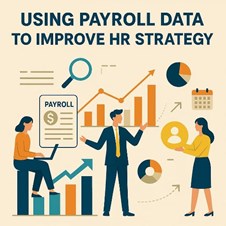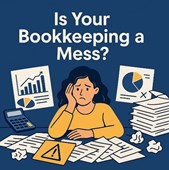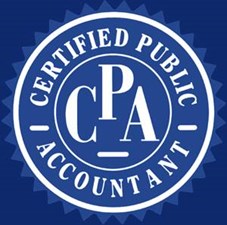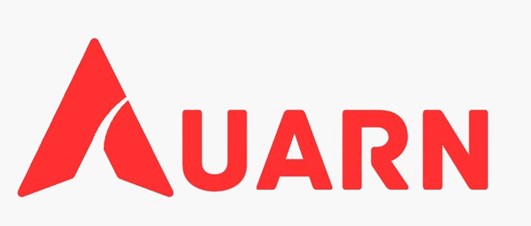Tips from Expert Accountants to Streamline the Filing Process

Filing taxes can be daunting and stressful for many individuals and businesses. It involves gathering documents, filling forms, calculating numbers, and meeting deadlines. However, with some planning and preparation, you can make the filing process more manageable and smoother. Here are some tips from expert accountants to streamline the filing process and avoid common mistakes.
Tip 1: Organize your records and receipts
One of the most important steps to streamline the filing process is to organize your records and receipts throughout the year. This will help you track your income and expenses and claim deductions and credits. You should keep records of your:
- Income statements, such as W-2s, 1099s, K-1s, etc.
- Expense receipts, such as medical bills, mortgage interest, charitable donations, etc.
- Bank statements, investment statements, retirement accounts, etc.
- Business records, such as invoices, receipts, mileage logs, etc.
You can use digital tools like apps, software, or cloud services to scan, store, and categorize your records and receipts. This will save you time and space and make accessing and sharing your information easier.
Tip 2: Choose the right filing status and form
Another vital step to streamline the filing process is to choose the right filing status and form for your situation. Your filing status determines your tax rates, deductions, and credits. It would be best if you chose the filing status that gives you the lowest tax liability, such as:
- Single, if you are unmarried or legally separated
- Married filing jointly, if you are married and want to file a joint return with your spouse
- Married filing separately, if you are married and want to file separate returns from your spouse
- Head of household, if you are unmarried and pay more than half of the costs of keeping up a home for yourself and a qualifying person
- Qualifying widow(er) with dependent child, if your spouse died in the past two years and you have a dependent child
Your filing form depends on your income, deductions, and credits. You should choose the most straightforward form that covers your situation, such as:
- Form 1040, if you have income from various sources, such as wages, interest, dividends, capital gains, etc.
- Form 1040-SR, if you are 65 or older and have income from various sources, such as wages, interest, dividends, capital gains, etc.
- Form 1040-NR, if you are a nonresident alien and have income from the US, such as wages, interest, dividends, etc.
- Form 1040-SS, if you are a self-employed individual and have income from the US, such as net earnings from self-employment, tips, etc.
Tip 3: Use online tools and software
A third vital step to streamline the filing process is to use online tools and software to prepare and file your taxes. Online tools and software can help you to:
- Fill out your forms accurately and efficiently by using your records and receipts and by asking relevant questions
- Calculate your taxes correctly and automatically by using the latest tax laws, rates, and tables
- Maximize your deductions and credits by finding and applying the ones that you are eligible for
- File your taxes electronically and securely by sending your information to the IRS and your state tax agency
- Track your refund status and receive notifications by using the IRS website or app
You can choose from various online tools and software, such as TurboTax, H&R Block, TaxAct, etc. Some are free or low-cost, depending on your income and complexity. You can also get help from online tax professionals, such as CPAs, EAs, or attorneys, who can review your taxes and answer your questions.
Tip 4: Hire a professional accountant
A fourth important step to streamline the filing process is to hire a professional accountant, especially if you have a complex or unique situation, such as:
- You own a business, rental property, or foreign assets
- You have multiple sources of income, such as self-employment, investments, or royalties
- You have high income, deductions, or credits, such as itemized deductions, business expenses, or education credits
- You have life changes, such as marriage, divorce, birth, death, or relocation
- You have tax issues, such as audits, penalties, or debts
A professional accountant can help you to:
- Prepare and file your taxes accurately and timely by using their expertise and experience
- Save money and time by finding and applying the best tax strategies and solutions for your situation
- Avoid errors and problems by complying with tax laws and regulations
- Resolve issues and disputes by representing you and negotiating with the tax authorities
You can hire a professional accountant from Sulekha Financial and Taxation Services. This category connects you with verified and licensed tax/accounting professionals and institutes in the USA and Canada. You can compare their profiles, ratings, reviews, and fees and choose the one that suits your needs and budget.
Conclusion
Filing taxes can be a breeze if you follow these tips from expert accountants. By organizing your records and receipts, choosing the right filing status and form, using online tools and software, and hiring a professional accountant, you can streamline the filing process and save money, time, and stress.
If you are looking for tax and accounting-related services, visit Sulekha Financial and Taxation Services today and find the best professionals and institutes near you.
Searching for Financial & Taxation Services? Let’s make your search simple with professionals!
Take your Financial & Taxation Services to the next level with Sulekha. Boost your online visibility, connect with more clients, and grow effortlessly!
Blogs Related to Financial & Taxation Services

Why Every Family Needs a Financial Professional Today
Money Is Confusing. A Financial Expert Makes It Simple. Between changing markets, tax rules, unpredictable expenses, and overwhelming investment choices, managing money has become more complex than ever. Even the smartest professionals often feel lo

Smart Money Starts Here: Meet Soujanya Vundavalli
Your Trusted Guide to a Confident Financial Future In a world where financial decisions feel overwhelming, confusing, and—let’s be honest—sometimes downright scary, finding a professional who brings clarity and calm is a gift. That’s exactly what S

The NRI Safety Net: Why Your Insurance is Your Biggest Tax Saver in the US & Canada
Building a Life Abroad Requires a Solid Foundation When you migrate from India, you're not just moving house; you're moving your entire financial world. You've worked tirelessly to build a successful career and a stable life for your family in the U

Stop Stressing Over Tax Season: Your Desi Guide to Seamless Accounting in the USA & Canada!
NRI Tax Jitters? You Are Not Alone!

How Can You Use Payroll Data to Improve HR Strategy?
How Can You Use Payroll Data to Improve HR Strategy? Payroll isn’t just about paying employees—it’s a goldmine of business intelligence. When analysed strategically, payroll data reveals patterns that can transform your HR strategy

Is Your Bookkeeping a Mess? Are You Missing Out on Growth Opportunities?
Is Your Bookkeeping a Mess? Are You Missing Out on Growth Opportunities?




